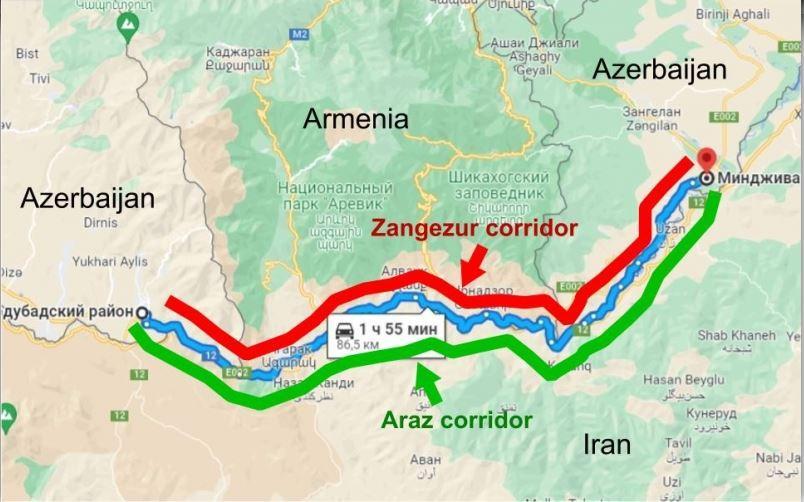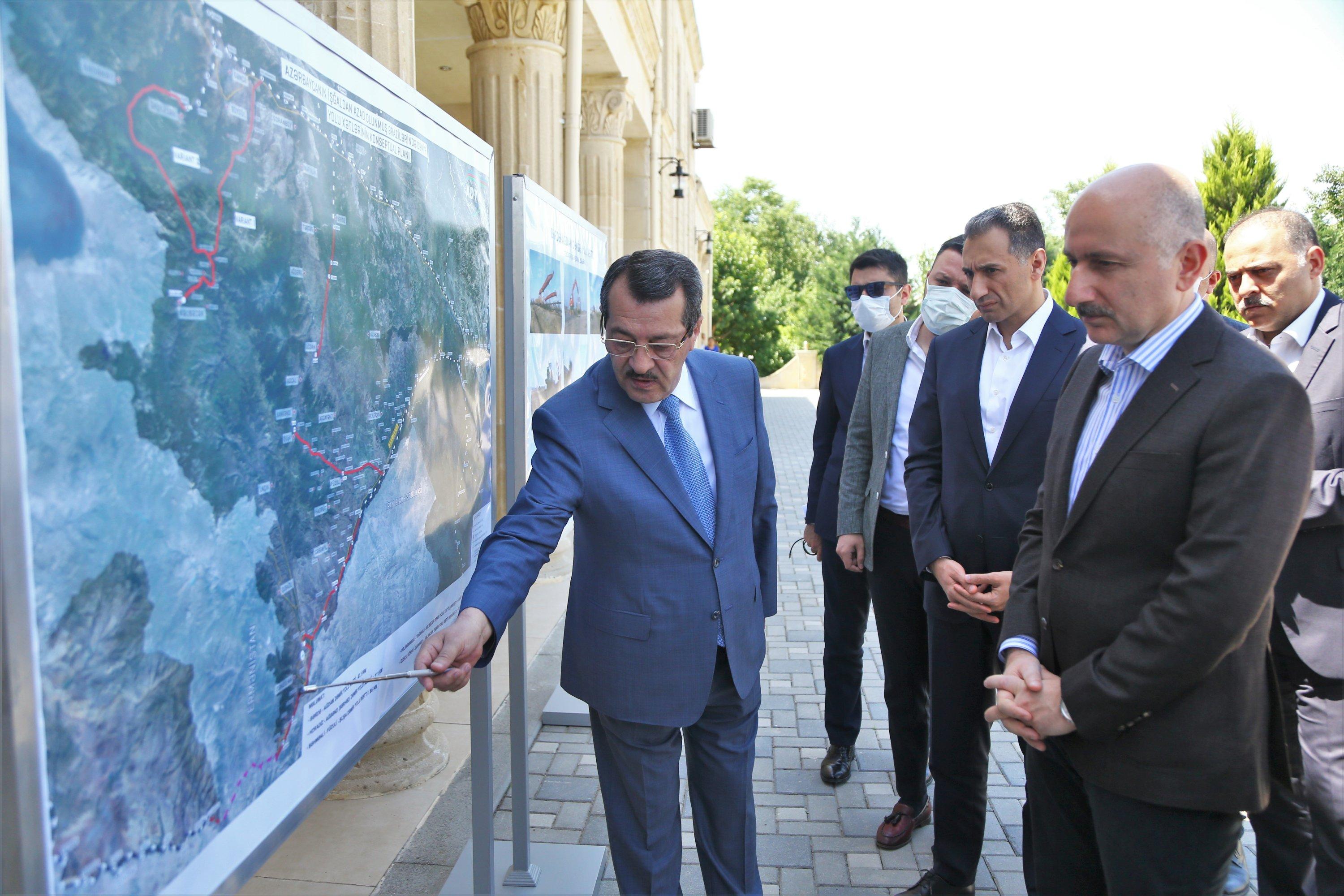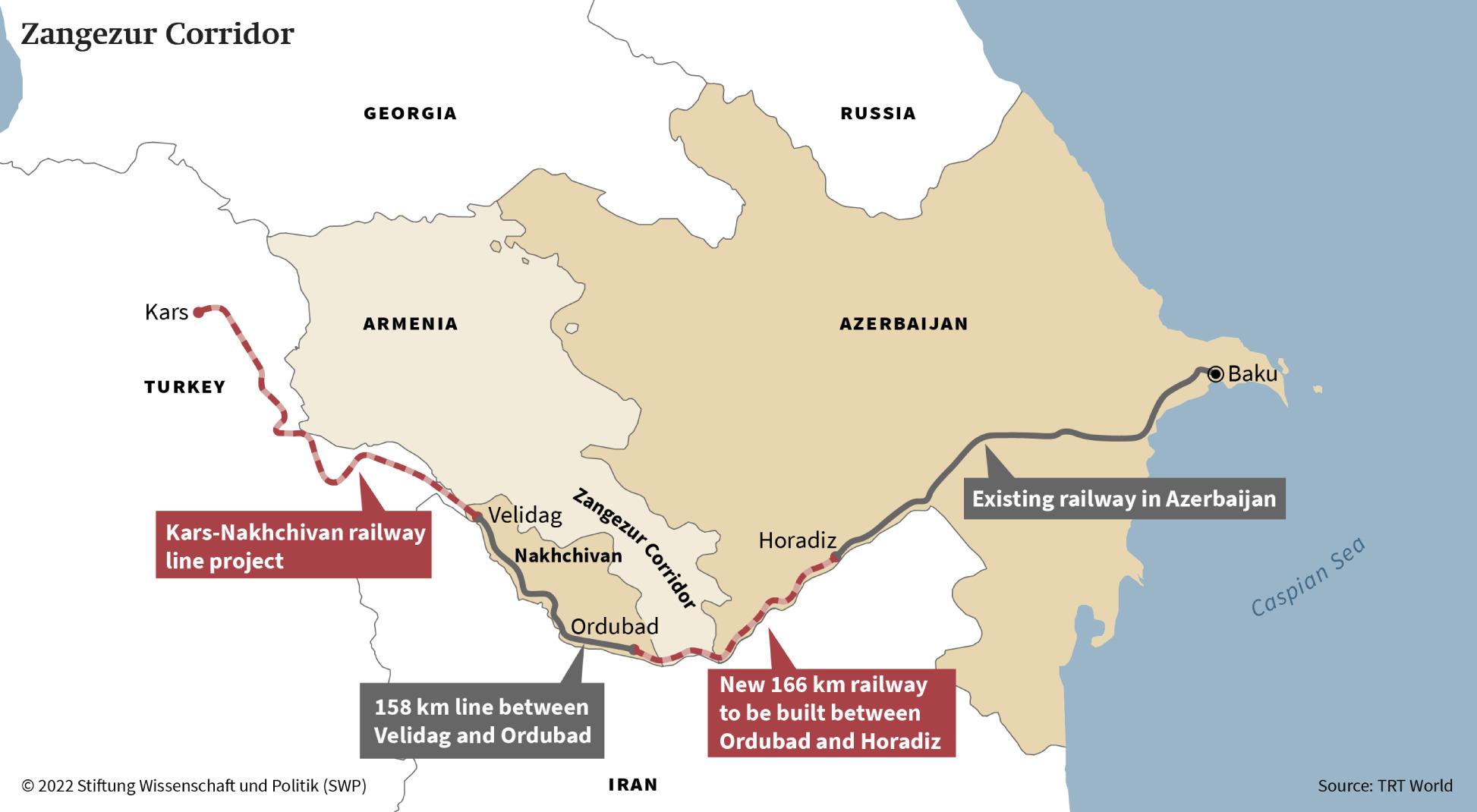Zangazur Corridor: Delayed but not defeated in South Caucasus power play Pause raises stakes for future talks
The recent developments surrounding the Zangazur Corridor reflect the intricate geopolitical maneuvers between Armenia and Azerbaijan, with broader implications for regional and global players. The corridor, which would connect mainland Azerbaijan with its exclave Nakhchivan through Armenia’s southern Syunik province (historically known as Zangazur), has long been a contentious issue. While it promises economic benefits and strategic connectivity, it also poses significant political challenges.
A mutually agreed pause
Elchin Amirbayov, Azerbaijan’s special presidential representative, was the first to reveal that Baku and Yerevan had agreed to temporarily remove the provision on opening the corridor from the draft peace agenda. The following day, Armenia confirmed that the provision to open regional transport lines, including the Zangazur Corridor was removed from the draft peace agreement with Azerbaijan. This decision was made based on mutual agreement. Armenia’s Foreign Ministry Spokesperson Ani Badalyan underscored the importance of opening transport lines for peace and economic development, aligning it with Armenia’s agenda of sovereignty and reciprocity.

Elchin Amirbayov's comments on removing the corridor provision from the draft peace agreement suggest that both nations agreed on a mutually acceptable solution and chose to exclude the Zangazur Corridor clause to avoid complicating the peace process. However, he made it clear that discussions on reopening communication lines would resume post-agreement, keeping the issue alive for future negotiations.
This mutual decision to put the Zangazur Corridor on hold demonstrates the delicate balance both countries are trying to maintain. It’s a strategic pause rather than a resolution, suggesting that while neither side is willing to back down entirely, they recognize the need for further dialogue to reach a consensus.
The corridor's strategic significance
The Zangazur Corridor is more than just a transport route; it is a strategic chess piece in the South Caucasus. For Azerbaijan, the corridor would provide a direct land link to Nakhchivan and Türkiye, enhancing its geopolitical leverage. For Armenia, however, the corridor raises concerns about sovereignty and control, especially as it would cut through its southern territory.

Armenia has consistently opposed the term "corridor," emphasizing that any transport lines must remain under its jurisdiction. This stance is rooted in fears that relinquishing control could set a precedent for further territorial concessions. Moreover, Armenia has advocated for a broader regional approach, linking the reopening of transport lines with potential benefits such as reopening the Armenia-Nakhchivan-Iran railway and access to the Turkish border.
Despite Armenia’s objections, Azerbaijan remains determined to establish the corridor without compromising its position. Baku insists that goods and people moving through the Zangazur Corridor should not be subjected to Armenian checks, a demand that has yet to be agreed upon by Yerevan.
Regional & global stakeholders
The corridor’s significance extends beyond the borders of Armenia and Azerbaijan, attracting the attention of major powers like the United States, Europe, Russia, and Iran. The US has openly supported the corridor, seeing it as a way to reduce Central Asia's dependence on Russia and China by providing an alternative route to global markets. During a Senate hearing, James O’Brien, the US Assistant Secretary of State for European and Eurasian Affairs, highlighted the potential of this route to transform the region’s economic landscape, creating shockwaves in Armenia.
Some Armenian analysts have warned that US pressure to open the corridor could be seen as an act of hostility by Iran. Tehran views the Zangazur Corridor with suspicion, fearing it could weaken its influence in the region. The possibility of the corridor falling under Western control adds to Iran’s anxieties, especially amid escalating tensions with the West and Israel. Analysts believe that Armenia's alignment with Western interests could provoke a hostile response from Iran, potentially dragging the region into a larger conflict.
Russia’s involvement adds another layer of complexity. As a traditional ally of Armenia and a key player in the South Caucasus, Moscow’s stance on the corridor remains cautious. While Russia participates in negotiations through its deputy prime minister, it is careful not to upset the fragile balance in the region, where it seeks to maintain its influence.
The long road ahead
Azerbaijani pundits provide a sobering perspective on the current situation. They suggest that the removal of the corridor provision from the peace agreement is a temporary measure, reflecting the challenges of reaching an immediate consensus. They point out that a special commission, including deputy prime ministers from both countries and Russia, has been formed to continue discussions. This indicates that while the issue has been sidelined for now, it is far from being resolved.
Their insights imply that the Zangazur Corridor will remain a critical topic in future negotiations. The decision to exclude it from the initial peace agreement should not be seen as a failure but rather as a strategic move to focus on areas where consensus is more achievable. The corridor's fate will likely be determined in subsequent talks, where both sides will need to weigh their strategic interests against the broader regional dynamics.

Conclusion: A Corridor of uncertainty
The Zangazur Corridor represents both opportunity and uncertainty for Armenia and Azerbaijan. While it offers the promise of enhanced connectivity and economic growth, it also poses significant political and security challenges. The recent decision to delay the corridor's inclusion in the peace agreement reflects the complexities of the issue and the need for further negotiations.
As the geopolitical landscape in the South Caucasus continues to evolve, the corridor will remain a focal point of contention and compromise. The involvement of global powers like the US, Russia, and Iran adds to the corridor's significance, making it a key issue that will shape the future of the region.
Whether the Zangazur Corridor will eventually be realized depends on the ability of Armenia and Azerbaijan to navigate these challenges and find a mutually acceptable solution that respects both sovereignty and strategic interests as well as their connectivity with the wider region and world and access to the global markets with their own weights.








